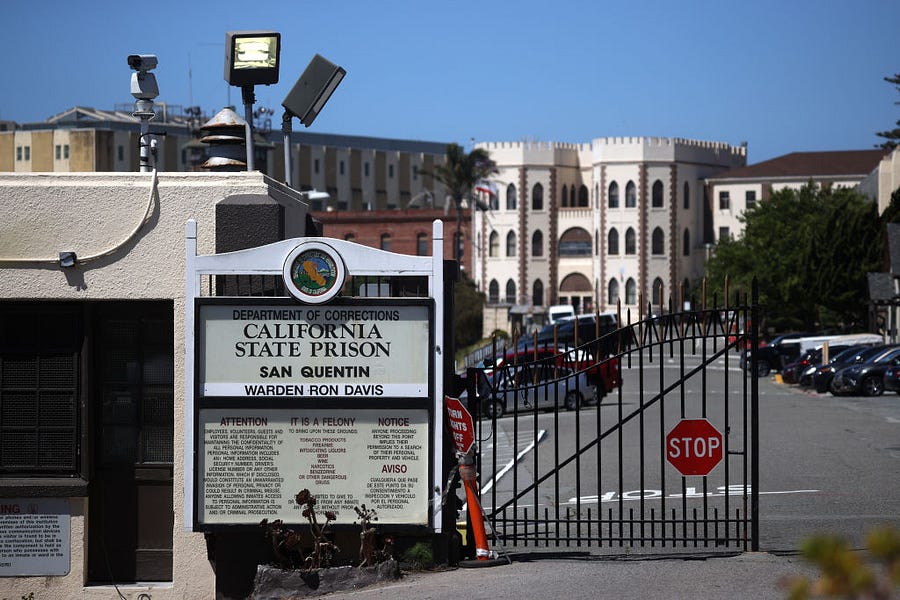For right-of-center Americans, California’s ultra-liberal policies often serve as a prime example of what not to do.
Whether it’s “pro-worker” gig economy legislation that ends up badly hurting freelancers or harmful high taxes that push wealth out of the state, the state offers Republican critics a constant stream of Democratic policies to attack and campaign against. Yet on the issue of criminal justice reform, California is leading the way on policy in a manner that conservatives may support, at least in part.
On September 30, Gov. Gavin Newsom signed a suite of criminal justice bills to address probation reform and juvenile justice reform, two issues where the governor may actually win some conservative applause.
AB 1950 attempts to reform the state’s probation system. Critics said that the existing probation process had trapped hundreds of thousands of Californians in a costly system in which they could be sent back to jail for minor technical mistakes and had to walk on eggshells for three to five years.
For example, someone on probation whose driver’s license is suspended could miss a court date or drug test if his ride falls through at the last minute. Or one could be unable to work because of a suspended license and be unable to pay court fees or fines. Under the status quo, they could have been imprisoned for such offenses. But how does putting these kinds of folks back in jail advance public safety?
The system not only locks up people who are not violent threats and keeps them from re-entering society, it’s also costly for taxpayers. According to the REFORM Alliance, an advocacy organization that backed the probation reform bill, California spends $2 billion annually to imprison people over such violations. And about $235 million of that taxpayer money is used for minor probation violations, such as being late to work.
The reform Newsom signed reduces probation terms from two years for a misdemeanor to just one year. It decreases the probation term for felonies from five years to two years.
Is this approach “soft on crime,” or is it something conservatives should support? Supporters argue that conservatives should actually back the California reforms because they save taxpayer money and promote limited government principles.
REFORM Alliance Communications Director Geoff Holtzman told the Dispatch that probation reform is “fundamentally about restoring liberty to individuals, getting government out of their lives, and helping people earn redemption and a second chance.”
“This particular legislation not only saves taxpayers billions of dollars,” he said of California’s reform bill. “It creates safer communities and stronger families, unlocks freedom and opportunity for thousands of individuals, and reduces the number of people who the government can harass."
Some conservative criminal justice analysts have supported California’s probation reform.
“The adult probation reforms signed into law will right-size government consistent with research showing that the vast majority of re-offending occurs soon after someone is placed on probation,” said Marc Levin, chief of policy for the Texas Public Policy Foundation’s Right on Crime project.
“As with welfare and other government programs, the goal should not be to serve more people for longer periods, but rather a streamlined approach that achieves better results,” Levin continued. “A smaller probation system can go hand in hand with greater public safety.”
Gov. Newsom also signed into law several changes to the juvenile justice system, such as mandates that teenagers under 17 be allowed to consult with a lawyer prior to police interrogation. Additionally, the reforms include halting the practice of schools referring youth with disciplinary problems to probation programs—what Newsom called the “school-to-prison pipeline.”
Conservatives might understandably worry that this would inhibit the ability of the police to intervene in cases where criminal acts are committed in schools. But this does not appear to be the case.
The bill scaling back probation really just serves to keep the criminal justice system out of non-criminal school discipline problems. For example, Los Angeles County was revealed to have put thousands of students into a juvenile probation system—with a probation officer and all—for what should have been simple school disciplinary matters such as truancy and grades.
“For conduct that is not criminal, this new policy recognizes that is, at the minimum, best to turn first to the provision of services to address issues such as mental health and developmental disabilities that often contribute to misbehavior,” Levin said.
Finally, one of the bills Newsom signed follows up on previous reforms to repeal some of the lingering costs and fines associated with navigating the juvenile justice system. In the past, the financial cost of going through the system often fell on poor parents and left minors unable to navigate it fairly.
Levin said this reform, in particular, is one conservatives should support.
“Nearly all children involved in the juvenile [justice system] lack their own resources to pay fines and fees,” Levin explained. “Children should be expected to focus on their schoolwork and stay out of trouble. Accordingly, the burden of juvenile fines and fees falls to parents who themselves did not commit an offense and who in many cases are indigent.”
“This legislation represents a final and positive step in ensuring the juvenile justice system can focus entirely on its core mission of working with families and communities to protect public safety through delinquency prevention and rehabilitation,” he said.
The lesson here for conservatives extends beyond the specifics of probation and juvenile justice reform. Negative polarization often leads us to reflexively oppose ideas advanced by the other side regardless of the merits. But positive reform is positive reform—even when it comes out of California.
Brad Polumbo (@Brad_Polumbo) is a freelance conservative journalist and host of the Breaking Boundaries podcast.
Correction, October 8: This article initially used the term “parole” in several instances instead of “probation.” It has been updated throughout.
Photograph by Justin Sullivan/Getty Images.






Please note that we at The Dispatch hold ourselves, our work, and our commenters to a higher standard than other places on the internet. We welcome comments that foster genuine debate or discussion—including comments critical of us or our work—but responses that include ad hominem attacks on fellow Dispatch members or are intended to stoke fear and anger may be moderated.
With your membership, you only have the ability to comment on The Morning Dispatch articles. Consider upgrading to join the conversation everywhere.